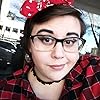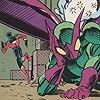
A Goodreads user
asked:
When this says "retold" does this mean the myths are reworked or is this original material? I don't want to read retellings an reworkings of mythologies I'd rather read the stuff as it is.
To answer questions about
The Norse Myths,
please sign up.
Ash Rogers
The thing about Norse Mythology is that we don't have the original material and we never will. The ACTUAL stories have been lost to history. So Snorri Sturluson came along and wrote a few down, changed them up a bit, weaved in some Christian bits, and voila.
This is probably the closest you'll get to the actual tales without reading the Prose Edda.
This is probably the closest you'll get to the actual tales without reading the Prose Edda.
BookOtheDay
This is a very, very mild retelling/reworking.
John
This is a few years late, but for anyone looking at this question now, the answer is a little complicated. To start with, the oldest available versions of these stories are actually already "reworked" from tales that we know existed prior, but no longer have.
With this book, Crossley-Holland parsed the available sources to create his own versions of those stories, but has done an extensive and entertaining job of documenting what those sources were, and how he used them for each tale. His end notes explain which bits of each story came from which source, why he included or excluded certain bits, what the alternatives were, how individual bits would have been culturally significant in different time periods, and so on.
Unfortunately, if you're looking for a perfect retelling of the "original" stories, what you're looking for is a storied career in archaeology. However, if you'll settle for a good understanding of what we know about those stories, and what they meant to the people who told them, this book is a great place to start.
With this book, Crossley-Holland parsed the available sources to create his own versions of those stories, but has done an extensive and entertaining job of documenting what those sources were, and how he used them for each tale. His end notes explain which bits of each story came from which source, why he included or excluded certain bits, what the alternatives were, how individual bits would have been culturally significant in different time periods, and so on.
Unfortunately, if you're looking for a perfect retelling of the "original" stories, what you're looking for is a storied career in archaeology. However, if you'll settle for a good understanding of what we know about those stories, and what they meant to the people who told them, this book is a great place to start.
About Goodreads Q&A
Ask and answer questions about books!
You can pose questions to the Goodreads community with Reader Q&A, or ask your favorite author a question with Ask the Author.
See Featured Authors Answering Questions
Learn more




